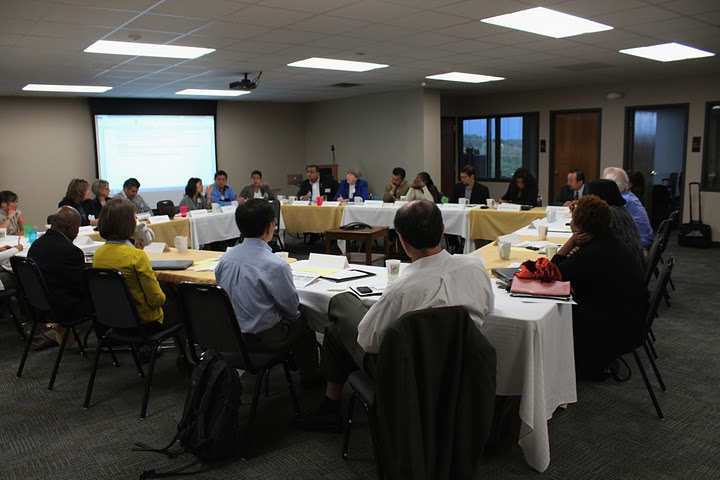We are enthusiastically planning for a conference in February that will promote integrated health care as a means of eliminating health disparities in racial and ethnic minority populations and among persons with limited English proficiency.
The conference will share information and insights from a national experts meeting held last month at the Hogg Foundation’s office in Austin. The group convened to discuss and make recommendations related to the intersection of integrated health care and cultural and linguistic competency.
 I wanted to take a moment to share a few powerful comments shared at the meeting. Participants were eager to talk formally during our time together and informally at dinner, during breaks and even on the shuttle to and from the hotel. Here are a few tidbits to whet your appetite—ideas and inspirations overheard throughout the day-and-a-half meeting.
I wanted to take a moment to share a few powerful comments shared at the meeting. Participants were eager to talk formally during our time together and informally at dinner, during breaks and even on the shuttle to and from the hotel. Here are a few tidbits to whet your appetite—ideas and inspirations overheard throughout the day-and-a-half meeting.
- Finally! This conversation has been a long time coming. We cannot continue to talk about integrated health care without also talking about the need for culturally and linguistically competent care.
- It’s important that we stop talking about mental health and physical health like they are two separate things. The goal is to treat whole people: mind, body and spirit. It is all health.
- It is critical to establish a strong integrated team that leverages the strengths of each team member. Providers must be seen as equal members of the team and treat each other as such.
- We can’t ignore the impact of social determinants of health. Factors such as community design, housing, employment, access to health care, access to healthy foods, environmental pollutants and occupational safety contribute to an individual’s health (or lack thereof).
- Integration can be implemented many different ways. There are many models, components and strategies that can improve services and coordination of care for both primary health and behavioral health.
- We CAN eliminate health disparities through the delivery of integrated health care. We must ensure that we are providing services in culturally responsive integrated health care settings that recognize the strengths of the individual and acknowledge that culture permeates all levels of assessment, diagnosis and treatment. The role and influence of culture needs to be “integrated” into the development of culturally responsive and linguistically appropriate intervention strategies.
On February 7, the Hogg Foundation and the federal Office of Minority Health will host a free one-day conference in Austin, “Quality Health Care for All: Eliminating Racial and Ethnic Disparities through Integrated Health Care.” I look forward to overhearing more inspiring and engaging discussion about this important topic and I hope you can be part of the conversation. Mark your calendars and stay tuned for more details about this FREE conference!